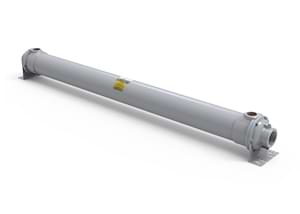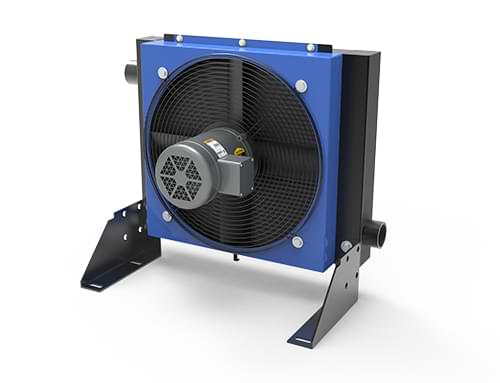Aftercoolers for the Food and Beverage Industries
Compressed air becomes hot and carries moisture, which can lead to contamination, spoilage, or equipment issues if not addressed. By lowering the air temperature and removing water vapor, aftercoolers help maintain operational efficiency and product integrity.
Applications
- Dairy Processing: Ever wonder how milk gets from the farm to your fridge without going bad? Compressed air helps with packaging and filling, but itís got to be dry and cool to avoid curdling or contamination. Aftercoolers keep the air in check.
- Snack and Food Production: Picture a chip factoryóairís blowing around to convey ingredients or seal bags. Hot, wet air could clump up seasonings or soggy up your crisps, potentially ruining the product.
- Bottling Plants: Whether itís soda or water, aftercoolers ensure the air pushing bottles along or capping them stays free of moisture that could rust machinery or comprimise hygiene.
Water Cooled Aftercoolers
Compressor Cooling
- Fixed or Removable Tube Bundles
- Material Options Available
- Standard and Custom Options

Air Cooled Aftercoolers
Compressor Cooling
- Use Ambient Air to Cool
- Variety of Motor Options
- Standard Pressures of Up To 250 psi

The Benefits of Aftercoolers for Food & Beverage
In food and beverage production, maintaining high standards of cleanliness and quality is paramount. For instance, in a brewery, compressed air is often used to transport ingredients, operate bottling lines, or aerate wort during fermentation. If the air remains warm and moist, it creates conditions where mold or bacteria could develop, compromising the final product. Aftercoolers reduce the air temperature, allowing moisture to condense and be removed, often in conjunction with a dryer, resulting in clean, dry air suitable for use in production.
A practical example involves a juice manufacturer that experienced frequent valve malfunctions and corrosion in their pneumatic systems due to moist, warm compressed air. After installing an aftercooler, they reduced maintenance costs and improved equipment reliability, demonstrating the value of this technology. Beyond protecting products, aftercoolers contribute to the longevity and efficiency of production systems.
While not always the most prominent equipment, aftercoolers are indispensable in food and beverage manufacturing. They ensure that air used in sensitive processes meets strict quality standards, safeguarding both the production line and the end consumer.


